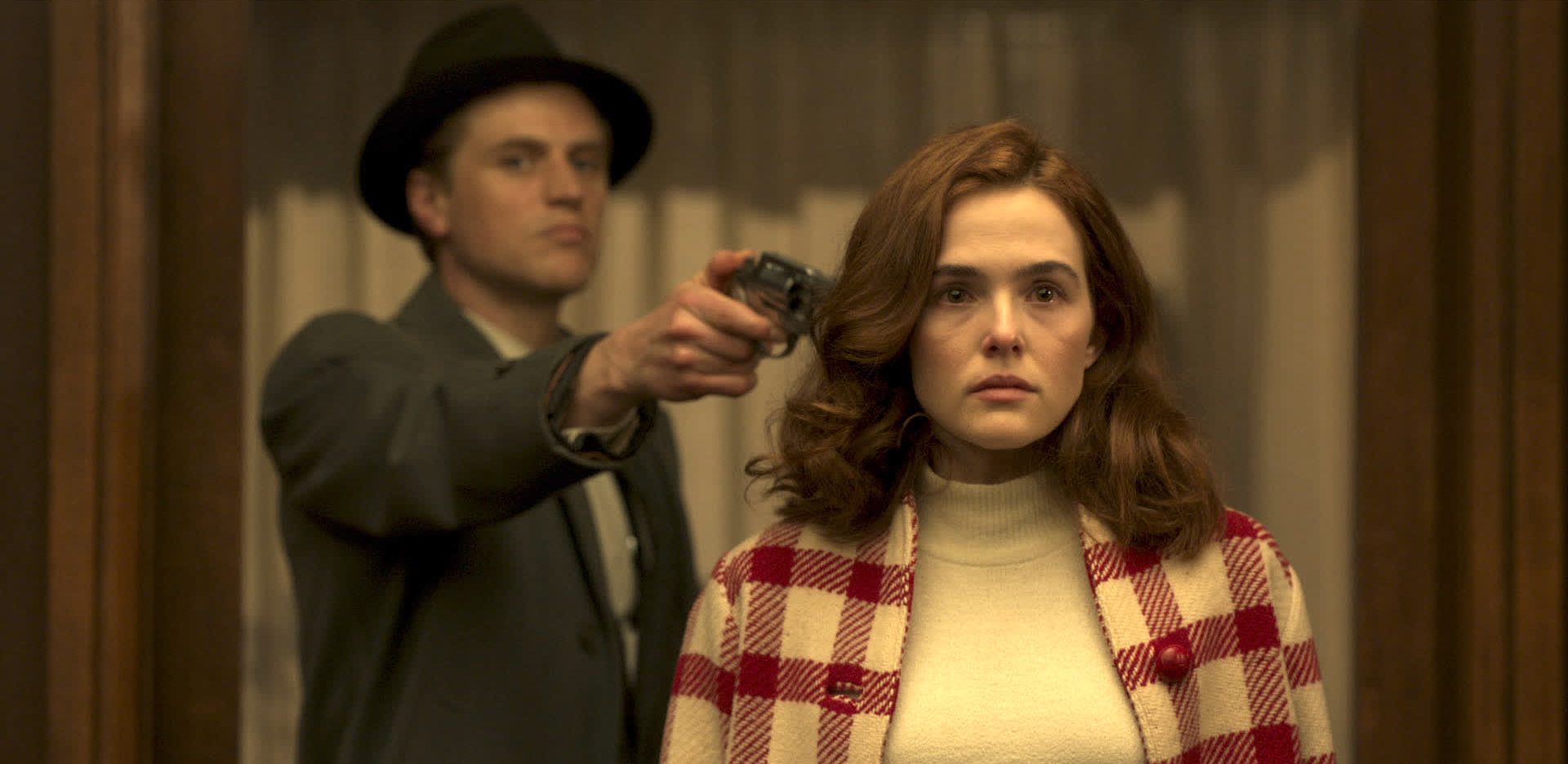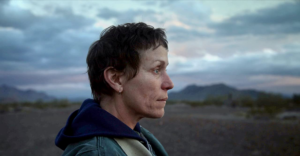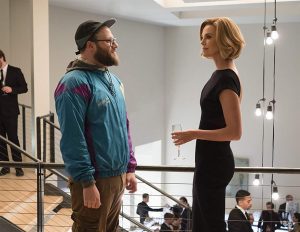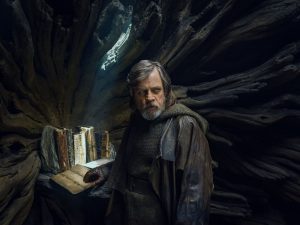A gold bell in the corner of the doorframe rings every time a customer enters Leonard Burling’s (Mark Rylance) small but elegantly arranged place of business in wintry Chicago. Receptionist Mable Shaun (Zoey Deutch) greets the tailor’s clients—the most loyal of whom just so happen to be mob boss Roy Boyle (Simon Russell Beale) and his trusted inner circle made up of son Richie Boyle (Dylan O’Brien) and Francis (Johnny Flynn), who sees Roy as a father. Soon enough, the affairs of the crime syndicate take over the shop.
From there, Graham Moore’s directorial debut The Outfit (2022) whisks the audience along in a series of complications and dangles the hope of a conclusion with restored justice. Yet despite the landmarks of a satisfactory experience—sleek cinematography, crisp score, and an array of apt performances—the overall effect is somewhat wanting. The film is enough for a fun time but does not necessarily impart the most memorable or compelling experience. Yet this snag isn’t enough to dissuade from a jaunty trip to this tailor’s shop.
After a step beyond the classic gold-lettered glass storefront with mannequins in its window, the audience encounters the unassuming immediate interior. Mable’s neatly placed snowglobes decorate the shelves—and act as representations of her aspirations to leave behind Chicago, the shop, and, to her chagrin, Leonard.
Customers enter every so often, until the general hush of the shop turns frigid after Leonard becomes witness to the machinations in the Boyles’ enterprise, thus implicating him in their affairs. Mable quickly finds herself captured by the Boyles, too. For the duration of The Outfit, viewers are trapped in the front reception area, middle showroom, and rear workroom with the pair.
Rylance grounds the film with a measured, reliable performance; Leonard smoothly handles each curveball, whether it be dealing with the untrustworthy Francis or shielding Mable from the accusations of Roy. The film simultaneously hints at the unplumbed depth of Leonard’s personal past, aided by flashbacks. Watchful, sometimes playful, Leonard is a man whom the audience trusts as a guide, a protector amidst the craze of murder, lies, and mystery. With every twist, viewers learn to question beyond his facade of meekness and fully appreciate his hidden capabilities.
Chicago accent loud and full of pride, Francis establishes himself early on as someone who will cause problems, and Johnny Flynn’s performance as the ambitious mobster fits the archetype just right. Acting as the continuous thorn in the plot, Flynn propels Francis with a magnetic, frenetic force and purpose, all while he dons the perfect nefarious outfit of a porkpie hat, gray suit and coat, brown briefcase, and loaded pistol.
Though O’Brien has far less screen time than fans desired, his shared scenes with Deutch are pleasing, as they support an intricate subplot for Mable’s relationship to the Boyle empire. Richie and Francis’s testy cooperation makes for a curious examination of just how friendly these co-workers are. The neat showroom of Leonard’s shop, handkerchiefs folded just so by Leonard and Mable the night before on the center table, morphs into a site of tension.
Deutch shines in the background, holding her own as she observes and operates in male-dominated crime operations. Additionally, moments between Mable and Leonard are heartfelt and soften the harshness of the other characters’ lies, imprisonment, and threats. She stands out: if not for her colorful red-patterned plaid coat, then for her perfectly conveyed shock and persistent care for Burling.
An exemplary score by Alexandre Desplat (whose oeuvre includes Little Women (2019) and both Harry Potter and the Deathly Hallows films) creates suspense in high-tension scenes and peace when Leonard explains the process of creation for a custom suit. Innovative camera angles—swiftly tracking the skilled shears in Leonard’s hands, a smoothly conducted murder—create a chic atmosphere of style and intrigue. Leonard’s calm narration also treats the audience as a confidant, steadying the viewer between gunshots ringing within the shop.
Yet while the film’s pace moves swiftly, bringing more complications to the quiet and dutiful bespoke cutter (not tailor, Leonard corrects), the film never really lands with an overall shock or thrill. Nothing necessitates The Outfit as a film not to miss.
Revelations of Mable’s involvement and Leonard’s secrets move the plot along, but the end of The Outfit finds a somewhat predictable conclusion. However, the fun of watching the characters having escaped their way through situations, including dealing with the rival Chicago gang headed by Violet LaFontaine (Nikki Amuka-Bird), still results in an entertaining viewing experience when Leonard exits the shop.
The Outfit has all the stylish accessories: chic set design, impeccable costuming, and a cast operating comfortably within their talents. There is everything available to entertain the viewers, except a major wow factor. However, the film is concise and cohesive—fitting for any casual movie night. It’s a good deal.






